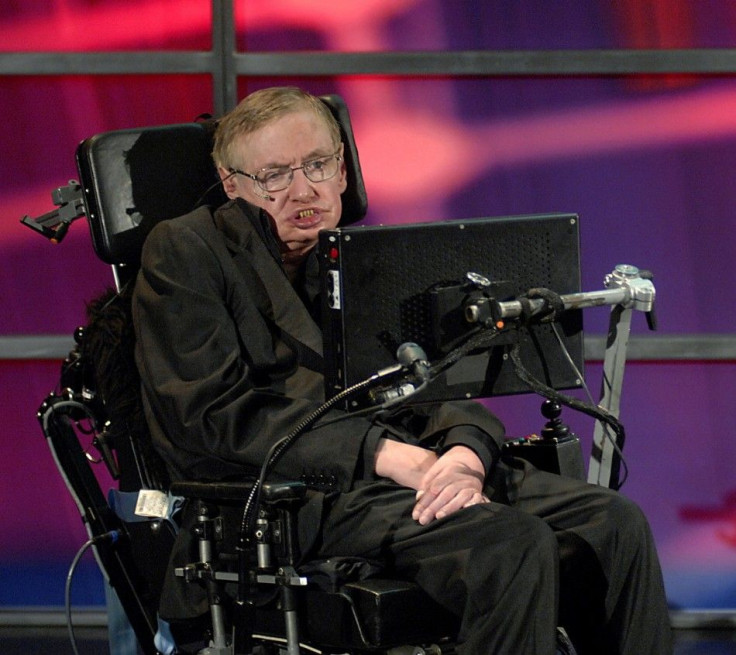Stephen Hawking Slams Donald Trump: British Physicist Says America Needs To Tackle Climate Change

Famed scientist Stephen Hawking expressed his concern over President Donald Trump's environmental policies during a recent interview on "Good Morning Britain," which is scheduled to air Monday.
"Climate change is one of the great dangers we face, and it’s one we can prevent. It affects America badly, so tackling it should win votes for his second term. God forbid," the 75-year-old Cambridge scientist said. "Trump was elected by people who felt disenfranchised by the governing elite in a revolt against globalization," he added, according to Mashable.
Hawking, who is also a recipient of the prestigious U.S. Franklin medal for science, asked for the removal of the Environmental Protection Agency chief Scott Pruitt. "Trump should replace Scott Pruitt at the Environment Protection Agency," he said. His concern is almost justified as Pruitt said earlier this month that carbon dioxide is not a major cause of global warming.
"I think that measuring with precision human activity on the climate is something very challenging to do and there's tremendous disagreement about the degree of impact, so no, I would not agree that it's a primary contributor to the global warming that we see," Pruitt told CNBC.
The U.K.'s leading physicist and cosmologist mentioned that he does not feel welcome to the U.S. anymore, hinting at the new immigration policies under Trump. "I would like to visit again and to talk to other scientists, but I fear that I may not be welcome," he said in the interview. He expressed his fears about the United States' "definite swing to a right wing, more authoritarian approach."
The "Good Morning Britain" show that conducted Hawking's interview is a British breakfast program aired on ITV and generally broadcast on weekdays. A preview of Hawking's interview was posted on the program's Twitter page.
'People who boast about their IQ are losers.'
— Good Morning Britain (@GMB) March 19, 2017
Catch @PiersMorgan's exclusive interview with Professor #StephenHawking on tomorrow's GMB. pic.twitter.com/4GG6nFExhQ
Hawking also commented on whether NASA's space program should be renewed after the discovery of the new planets.
"The recently discovered system of seven Earth-sized planets is 39 light years away. With current technology there is no way we can travel that far. The best we can envisage is robotic nanocraft pushed by giant lasers to 20% of the speed of light. These nanocraft weigh a few grams and would take about 240 years to reach their destination and send pictures back. It is feasible and is something that I am very excited about," he said, according to the Guardian.
© Copyright IBTimes 2024. All rights reserved.






















